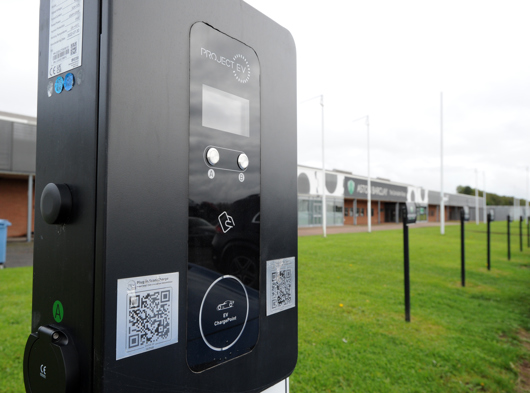
JLR Cyberattack Halts UK Production
September opened with a major shock to the UK automotive sector as Jaguar Land Rover (JLR) suffered a cyberattack that forced production to stop across its UK factories. Vehicle output fell 18.2% year-on-year in August, largely due to the disruption, while electrified vehicle production, including hybrids and battery-electric cars, rose by 40.9%, showing strong momentum despite the crisis. The incident highlights the vulnerability of even large automakers to cyber risks and supply chain shocks.
Charging Access Gaps Spotlighted
A new report from Transport Focus revealed that charging networks in England are leaving disabled drivers behind. Many existing charge bays feature physical barriers such as bollards, tight spacing, or raised curbs, making access difficult for adapted vehicles. On motorways and major roads, no chargers currently meet accessibility standards. Transport Focus is calling for mandatory regulations, remediation of existing sites, and stronger co-design with users to ensure the EV transition is inclusive.
Walking Distance Matters
Consumer trust is being affected by the practical usability of chargers. Research from the EV Transition Tracker shows that only 31% of the public would walk more than ten minutes to a charger, while 20% would not walk more than five minutes. Among disabled drivers, 37% said they would avoid using public chargers altogether due to concerns about bay size and layout. This demonstrates that convenience and usability are just as important as overall network coverage.
Compliance Pressures on Operators
EV charging operators are under growing pressure to meet strict uptime and reliability standards. With regulators emphasizing high service quality, the sector faces increasing operational and compliance burdens. These pressures could drive consolidation or encourage investment in advanced monitoring and predictive maintenance solutions.
European Policy Signals Impact UK Market
Over 150 European electric car industry leaders urged the EU not to delay 2035 zero-emission vehicle targets, warning that delays could damage investor confidence. While UK-specific, these developments matter because the UK automotive sector is closely linked to European markets and regulations.






